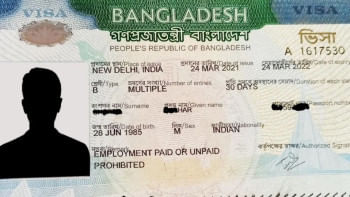Challenges of being an entrepreneur

Last year, we were visited in class by the founder and CEO of an IT company. While speaking to the class, he asked how many of us wanted to be entrepreneurs. One of my friends did not raise her hand, and had good reason for it. Her father had built his career as an entrepreneur, going through the struggles of the role that she saw first-hand. She simply did not want to take on the same stress.
If being an entrepreneur were indeed hurdle-free and all about success, wouldn't it be the more widely adopted career choice over secure jobs? In truth, it's not. As a final year BBA student, I see the majority of people around me worrying about what job they'll get; not what their entrepreneurial journey will be like. This got me to wonder about the challenges an entrepreneur has to deal with as a part of the role. In conversation with Samin Ahmed*, a founding partner of a consulting firm and an ITES platform, here's what I learnt:
Entrepreneurs need to learn accounting and legal basics.
Especially when starting from scratch, a young company is unlikely to have a big accounting or legal team. But legal business requires at least a trade license and bank account for transactions. The entrepreneur is eventually the one who ends up figuring out how to acquire these.
Even if initial documents can be managed some other way, a business owner needs to understand at least some accounting and legal implications to make decisions.
While forming his first company, Samin found this more challenging than other responsibilities. Although a business graduate, he needed a small induction period to learn the specifics that were useful for his line of work.
Holding on to good people can be difficult at times.
Structured career progression and an MNC-level competitive pay check are difficult things to give employees in the beginning. In a completely new company, things take a while to get on track. In this time, entrepreneurs often have to face the reality of missed potential.
"Letting people go without being able to give them enough opportunities is hard. But the reality is that you cannot afford all those opportunities in a new company," shared the interviewee, looking back at the last three years of his entrepreneurial career.
Hard work is not recognised everywhere.
Millennials understand the concept of entrepreneurship, or at least they have a vague idea of it. More importantly, many young people are appreciative of entrepreneurs. The same cannot be said for older generations.
Despite having the option to continue along the corporate path, Samin chose to run a business. This meant taking on more responsibilities and risks. Even after successfully building up his own venture from nothing, he discovered that his work was not always appreciated. Relatives would ask blunt questions about whether he makes any real profits, and why he isn't doing a job. Each time, he would have to explain that his work was relevant and that he made enough money.
It truly gets a little lonely at the top.
Making independent decisions is both a perk and a con of being an entrepreneur. The interviewee explained that sometimes solo decision making is a burden, because there's no one else to tell him whether his decisions are good or bad.
As an employee, a person's decisions mostly affect himself. As an entrepreneur, every decision taken is a decision that affects at least a few more people. Making these decisions alone also means shouldering a weight, because anything that goes wrong is on him, at the end of the day.
Partners' expectations don't always align.
Partners may make it easier to run the company, but they might also add some complexities to management. At certain times, partners may have completely different expectations from each other and the business. What ensues can be a small disagreement to a massive deal breaker that pulls the company apart.
In these times, the sensible entrepreneur needs to mediate. Sometimes, he may even need to make compromises on what he wants in order to keep healthy professional relationships alive.
An entrepreneur undoubtedly gets to exercise a lot of freedom that would otherwise not be an option. But, one needs to know that compromises must be made here as well, and complete freedom is not always convenient. The role certainly isn't simple. Behind the cool things we tend to associate with entrepreneurship, there are many challenges that the entrepreneur faces alone.
*Name has been changed for privacy
Tasmiah is a senior studying Finance at IBA, DU. She likes food and makes stressful choices.


 For all latest news, follow The Daily Star's Google News channel.
For all latest news, follow The Daily Star's Google News channel. 



Comments